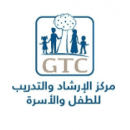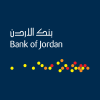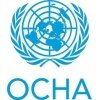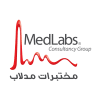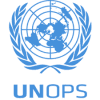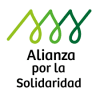External Evaluation of a Project
Terms of Reference
Project Evaluation
Introduction
The project entitled “Protecting Children’s Rights Under Occupation by Creating Appropriate Complex Trauma Treatment Environments. Psychosocial Intervention in Schools in Bethlehem, West Bank, Palestine” is implemented by the Guidance and Training Center for the Child and Family (GTC) and runs from January 2017 to 30 September 2021 with funding contribution from Weltfriendensdienst e.V. (wfd). The project shall undergo an external evaluation in compliance with regulatory requirements by the GTC funding partner.
About the Guidance and Training Center for the Child and Family (GTC)
The Guidance and Training Center for the Child and Family (GTC) was founded in Bethlehem in 1994 to provide mental health services, special education services and training for Palestinian children and families.
The GTC follows a holistic approach to meet the needs of the children and families and support healthy social, cognitive, emotional and educational development. The GTC focuses not only on the problems of the individual and families, but on the environment that they live in and how the cultural context affects them. As part of this approach the GTC nurtures relationships with parents and families, schools, governmental and private organizations.
The GTC works within 5 main programs: Therapeutic services, Preventive services, training, Research and advocacy that are interrelated and integrated to enable the GTC to reach the following objectives:
Provide preventive and therapeutic services in the area of mental health for children and families in the Palestinian society.
Pursue the development of knowledge, skills and experiences of professionals in the field.
Conduct research through programs that meet the needs of the target groups
Participate in the development of mental health in the Palestinian society and the wider international community in support of the Sustainable Development Goals.
The Project:
The project development goal is: building on a more complex shared understanding of the psychosocial impact of growing up in the conflict context and the associated consequences for the society as a whole, psychosocial practitioners, educators, and human rights advocates apply this new understanding in their respective work are better networked with each other, leading to qualitative improvements in their work.
In order to reach this objective, the GTC developed a project built under two main outcomes with specific objectives as follows: First. To improve the quality of psychological interventions in schools by providing a professional staff using knowledge, skills and tools to deal with complex trauma. Second, to establish common understanding on effects of mental health of children.
In order to implement the project, the GTC cooperating with governmental and non- governmental organizations in addition to schools in the Bethlehem area, another important stakeholder is parents of children who benefited from the project and patients who received interventions. During the project, GTC formed a cooperation with the Ministry of Education and worked with a number of governmental schools.
Cause and objective of the evaluation
This is a final evaluation intended for obtaining an external, independent assessment of the implementation of the project. The evaluation should investigate the impact, effectiveness, efficiency, relevance and sustainability of the project, and provide the GTC with feedback and recommendations that will contribute to improved activities implementation to reach the intended project’s goals and objectives.
Therefore, the evaluation will not only contribute to the Monitoring and Evaluation of the project but it is also a regulatory requirement by funders, also in addition it will help the GTC to conclude lessons learned and propose adjustments if needed.
Results of the Evaluation will be used by project partners, namely the GTC, WFD, and shared with other GTC partners contributing to the project.
Key questions
The evaluation should respond to the following key questions taking into account gender and other cross-cutting issues such as environmental impact and inclusion of people with a disability.
Relevance
To which extent do the objectives of the project align with the needs of the target group?
QUESTION 1: Does the project address the priorities and needs of the targeted groups?
QUESTION 2: To what extent does the project respond to the needs and interests of the beneficiaries?
QUESTION 2: Do the designed strategies correspond to the objectives?
Effectiveness
Are the objectives of the project/programme being achieved? This criterion measures the extent to which the objectives of a project/programme will (foreseeably) be achieved.
QUESTION 1: Is the Program contributing to improved quality of life of the direct beneficiaries?
QUESTION 2: Are the GTC staff competencies and capacity suitable and effective for the goals of the intervention?
QUESTION 3: Are the tools used (specifically: therapy, parenting, trainings) helping to achieve the specific objective of the intervention logic?
Efficiency
Will the objectives be achieved in an economically viable manner? This criterion measures the adequacy of the deployed resources in relation to the achieved results and effects.
QUESTION 1: Are the systems used by the GTC achieving the greatest potential in an efficient way?
QUESTIONS 2: Are resources and expertise used efficiently to optimize project outcomes?
Impact
Will the project / programme contribute to the attainment of overall development goals?
QUESTION 1: Do the strategies that are used to develop and implement activities have the potential to contribute towards the development goal of the project?
Sustainability
Will the intended positive changes (foreseeably) have a lasting effect? This criterion assesses the extent to which the positive effects of the development intervention will continue beyond the end of the project period.
QUESTION 1: What is the likelihood of continued long-term benefit from the intervention for beneficiaries?
QUESTION 2: Does the design of activities allow for a sustainable effect?
Evaluation design/ methods
The evaluator should conduct the evaluation using the OECD-DAC standards. It is also important that the evaluation uses a participatory approach, which seeks the views and assessments of all Stakeholders and project staff members, while at the same time keeping neutrality and independence.
The evaluator should clarify his/her methodology in the technical section of the proposal submitted to GTC taking into consideration the following:
Review and analysis of project documents provided by the Administrative and Financial Director and Projects Manager including project proposal and narrative reports submitted to funders.
Data collection should include gathering data from different stakeholders in person using focus group discussions and individual interviews.
Meetings with project staff including the Clinical Director, Psychologists, Project Manager and supervisor.
Process of the evaluation/ time frame
The evaluation is expected to be implemented during a period of 45 days starting on September 7th 2021.
Expected products
The following are deliverables needed to complete the evaluation:
Kick off meeting – one week after the selection of the evaluator and by September 14th 2021
Inception report – by September 21st, 2021
Draft of the final report- by October 12th 2021
Final report - by October 20th, 2021
Meeting to present evaluation report by October 25th
All reports should be written in English.
The Final report should be in English, executive summary shall be presented in both English and Arabic.
Key qualifications of the evaluators
This evaluation will require the services of an expert with the following qualifications:
Proven previous experience in conducting evaluations.
Academic degree in a mental health related field.
Expertise in the field of mental health.
Knowledge in civil society co-operation and development cooperation.
Understanding of the cultural and political context in Palestine.
Excellent command of Arabic and English.
Content of the evaluator’s offer
The content of the evaluator offer should include the following sections:
CV of the evaluator.
Technical proposal:
Outline of the planned evaluation procedure
short explanation and justification of the methods to be deployed.
Evaluation proposed timeframe.
Financial proposal
Complete cost estimate of consultant fees including all costs to be incurred, such as transport, accommodation and taxes.
Offer should be submitted in English language.
Provide VAT official invoice and certificate of deduction at source, alternatively 10% of payment will be deducted by GTC to settle with the Income tax authority if no tax invoice submitted.
Please submit the offer and proposal in English by email to [email protected] no later than September 9th 2021.




